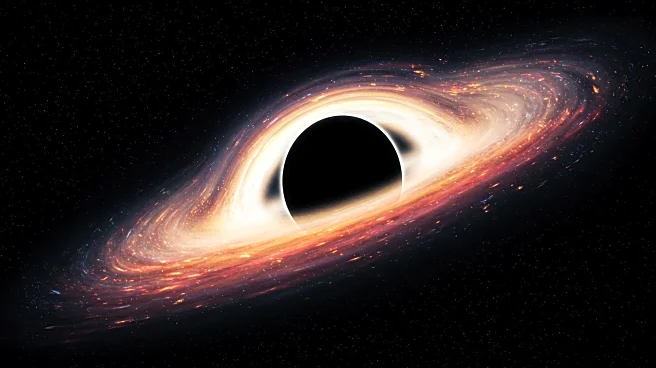What is the story about?
What's Happening?
Researchers using the James Webb Space Telescope have proposed a groundbreaking hypothesis that the universe might be contained within a massive black hole. This theory challenges existing cosmological models and suggests a structured cosmic design, as observed in the rotational patterns of ancient galaxies. The discovery prompts a reevaluation of fundamental cosmic principles and the nature of space-time.
Why It's Important?
This hypothesis could revolutionize our understanding of cosmology, potentially altering theories about the universe's origins, structure, and ultimate fate. It raises questions about the fundamental laws governing matter distribution and time flow, impacting scientific research and philosophical perspectives on our place in the cosmos.
Beyond the Headlines
The idea that the universe might reside within a black hole challenges traditional cosmological models and suggests new pathways for scientific exploration. It highlights the need for accurate astronomical observations and the potential for observational biases, such as the Doppler effect, to influence our understanding of cosmic phenomena.















